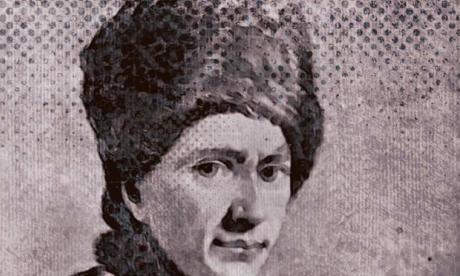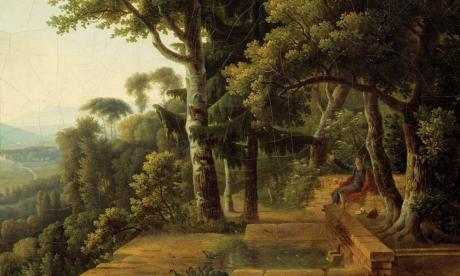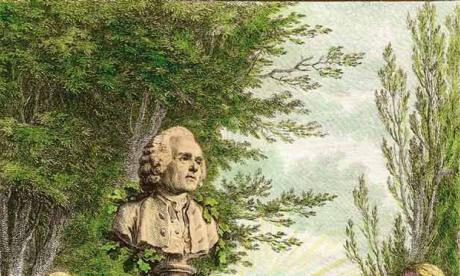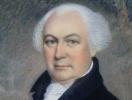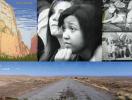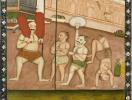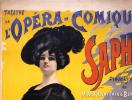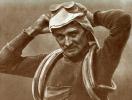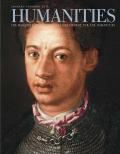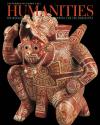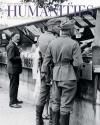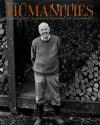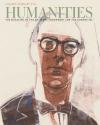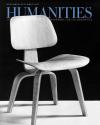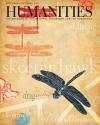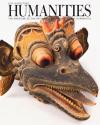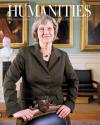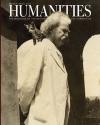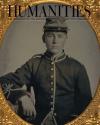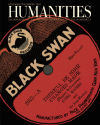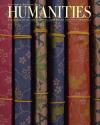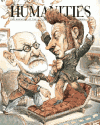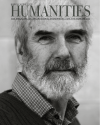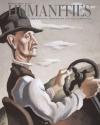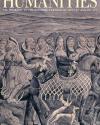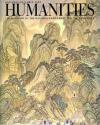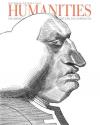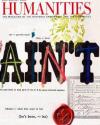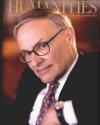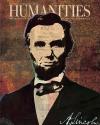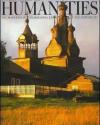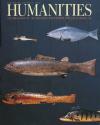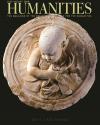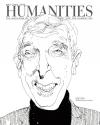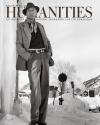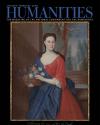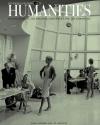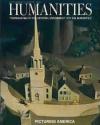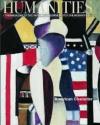When I was finishing a biography of Jean-Jacques Rousseau some years ago, I was struck by the comment of someone who had known him: “the friends of Rousseau are as though related to each other through his soul, which has joined them across countries, ranks, fortune, and even centuries.” many people who have barely heard of him are indeed friends of Rousseau, because his ideas have had a pervasive influence in our culture.
Quite astoundingly, this Genevan watchmaker’s son, with no formal education at any level, arrived at profound insights that continue to challenge and inspire. and not just in one area or field, either, but in a whole range that might normally seem unconnected. I will briefly describe his legacy in three of them: in political thought, in psychology, and in the philosophy of education.
Rousseau’s first great work was a Discourse on the Origin and Foundations of Inequality among Men, written in 1749 as an entry in a prize competition (he didn’t win—the judges said his submission was too long). the expected answer in those days would have been that God created us to be unequal, or else that nature did. Either answer would confirm the rightness of social hierarchy and privilege. Rousseau, far more pessimistic than Marx would later be, accepted the truth that inequality is inseparable from human culture, but he wanted to know why.
The answer was the idea that would underlie everything Rousseau ever wrote: man is naturally good, but society has made him wicked. That is to say, we are not corrupted by original sin as the churches taught, or driven by instinct to dominate each other as Thomas Hobbes taught. If we are indeed selfish and competitive and possessive, it is because we have been conditioned to be.
Rousseau imagined a pre-civilized state of nature in which our ancestors, more like apes than like ourselves, had no need or opportunity to exploit and enslave each other. As hunter-gatherers they could be essentially self-sufficient. The irrevocable change came with the invention of metallurgy and agriculture, twin foundations of a developed civilization. (Interestingly, Jared Diamond says much the same thing in Guns, Germs, and Steel.) Each of these advances has contributed to our material well-being, but they are only possible in an organized society in which the many are controlled by the few. What then develops, accordingly, is bureaucracies, legal systems, and organized religions that teach people to accept their lot in this vale of tears.
Rousseau describes this change eloquently in the Discourse: “Equality disappeared, property was introduced, labor became necessary, and the vast forests changed to smiling fields that had to be watered with the sweat of men, where slavery and poverty were soon seen to germinate and grow along with the crops.” It is a powerful insight: Inequality is ethically wrong, and yet it is inevitable. The best we can do is to try to minimize it. No wonder, as the Swiss scholar Jean Starobinski has said, “The immense echo of these words expanded in time and space far beyond what Rousseau could have foreseen.”
If hierarchy and inequality will always be with us, what can be done to alleviate their burden? Pondering this question led Rousseau, a decade later, to write The Social Contract, one of the landmarks in the history of political thought. Previous theorists thought of the contract as a commitment in which a people had sworn allegiance to a king, or else, as with John Locke, in which a people had agreed upon specific powers that their government should exercise on their behalf. In either case it was an event in the past, by which successive generations must be bound. But Rousseau, building on the insights of his discourse on inequality, issued a ringing challenge: “man is born free, and everywhere he is in chains.” If there have to be chains, how can we make them less binding and painful?
Rousseau’s solution was that in order to be truly viable, a culture needs the wholehearted commitment to a shared ideal. The social contract in this sense is not a historical event but a living belief in community, each individual fully part of the whole. Rousseau called such a community a moi commun, a common self (literally a “common me”). It follows that an individual should be seen not as a subordinate “subject” but as an equal member of the “sovereign.” That term normally referred to a monarch, but what Rousseau meant by the sovereign was the whole body of citizens, who can choose to delegate executive powers to a king or a president or any other agent they might prefer.
It is always said that the American Founders were chiefly influenced by Locke and Montesquieu, and so they were. But some were influenced by Rousseau as well, though his radical reputation made it unwise to say so openly. Jefferson’s immortal line, “We hold these truths to be self-evident, that all men are created equal, that they are endowed by their creator with certain unalienable rights,” comes directly out of The Social Contract, published two hundred and fifty years ago this year.
When Alexis de Tocqueville visited America in 1831–32, our nation was half a century old, the first successful example of a stable, effective modern democracy. Coming from a France that had a new revolution every decade or so, Tocqueville wanted to understand what made the United States succeed. this became the theme, of course, of the great Democracy in America that he went on to write. Tocqueville interviewed many Americans, from the former president John Quincy Adams down to small-town lawyers and shopkeepers, and he came up with a phrase that has become famous: les habitudes du coeur, “habits of the heart.” Tocqueville, a great admirer of Rousseau, borrowed this idea from The Social Contract. According to Rousseau, “the most important law of all is not engraved on marble or brass, but in the hearts of the citizens. . . . It preserves a people in the spirit of their founding, and it imperceptibly substitutes the force of habit for that of authority. I am speaking of mores and customs, and above all of opinion, a subject which is unknown to our political theorists, but on which the success of all the other laws depends.”
That is Rousseau’s legacy as a political thinker: to remind us of the gap between what ought to be and what we have to settle for, and to inspire our belief in ourselves as a communal whole. But this was far from the only domain in which he explored his foundational idea about the ways in which socialization distorts our nature. Pondering his own strange life story, he wrote in midlife his Confessions, the first great modern autobiography and a rich source of ideas for how we understand each other and ourselves.
Rousseau borrowed his title from St. Augustine, but his aims were altogether different. Augustine wanted to show how each of us comes into the world a prisoner of sin—even babies envy and hate each other, he says—and how he personally became a new man after a religious conversion. Rousseau wanted to show how children come into the world trusting and loving, and how he personally was socialized into betraying his own true nature. The word “autobiography ” had not been invented yet when he wrote; the usual term was “memoirs,” recounting the significant public events of a person’s life. Writers of memoirs seldom gave more than a page or two to their first twenty years, hastening on to the events they expected readers wanted to know about. Rousseau gave two hundred pages to his first twenty years.
The great original insight in the Confessions is that certain crucial experiences, often apparently trivial from anyone else’s perspective, have a profound role in shaping individual personality. Rousseau also believed that the most significant incidents are the ones that haunt a person’s memory but are hard to make sense of. For that very reason they may conceal the most telling revelations.
Following this line of thinking—which would lead eventually to Freud—Rousseau describes an occasion in boyhood when a female guardian spanked him and he discovered that it gave him sexual pleasure. (she noticed it too, and the spankings ceased.) When the Confessions were posthumously published, reviewers scoffed at this kind of material, which they regarded as embarrassing and irrelevant. To be sure, there were libertines who liked to be spanked or whipped, and brothels where they could pay to have it done; that was regarded as a simple matter of sexual tastes. What Rousseau was trying to understand was something different, something central to his own personality. He was confronting his own masochism (that word didn’t exist yet either), and his self-analysis is poignantly insightful. What he wanted from women, he realized, was the thrill of being reproved without actual physical contact, an erotic charge all the more intense for being taboo and withheld. “To be at the knees of an imperious mistress,” he says, “to obey her orders, to have to beg her pardon, have been for me the sweetest delights.”
This emotional orientation, together with a tendency to idealize elegant ladies and then to feel unworthy of them, thwarted most of his relationships. He fell in love often, or at least became powerfully infatuated, and about this too he achieved impressive self-knowledge. What he came to understand was that he tended to project onto women the qualities he wanted them to have, with the result that his passion focused more on fantasy than reality. This pattern reached its apogee when, in middle age, he was writing his novel Julie, or the New Héloïse, and was unexpectedly smitten by the mistress of a friend. “I was intoxicated with love without an object; this intoxication enchanted my eyes, and the object fixed itself on her. I saw my Julie in Mme. d’Houdetot, and soon I saw only Mme. d’Houdetot, but clothed in the perfections with which I had been adorning the idol of my heart.” As Paul Valéry once observed, we love what is unreal because it’s unreal.
One other episode in Confessions should be mentioned, since it connects strikingly with the discourse on inequality. Rousseau had argued there that social life creates emotions that “natural man” would not have known, in particular envy of others for surpassing us in various ways, and shame at being looked down on by them. as a sixteen-year-old servant, he pilfered a decorative ribbon, meaning to give it to Marion, a kitchen maid to whom he was attracted. the ribbon was missed, the servants’ quarters were searched, and it was found in his room. Brought before the entire household for interrogation, he panicked and declared that it was Marion who had given it to him. She couldn’t prove that she hadn’t, and they were both discharged. For forty years, until he finally told this story in Confessions, Rousseau was tormented by guilt, suspecting that Marion could never get a good job again. But it was shame, he says, that inhibited him from telling the truth. the public shaming of being seen to be a thief was more intolerable than the concealed guilt of betraying an innocent person.
In the field of education Rousseau’s insights have continued to resonate. most of the philosophes—Voltaire, Diderot, Hume—had been brilliant students in school, and however oppositional they might believe themselves to be, they were formed by a shared intellectual milieu. Rousseau (like William Blake, another countercultural critic) never attended a single day of school, and after being taught as a child to read and write, he was an autodidact thereafter. He never denied that it was a most laborious path to learning: “If there are advantages to studying alone, there are also great drawbacks, and above all an incredible difficulty. I know this better than anyone.” But it meant that he approached each new author with an open mind, wrestling with books from his own perspective and not working to please a teacher or excel on an exam. By the time he wrote The Social Contract, he was deeply read in political theory, but he brought to his reading a lifetime of personal reflection on the way society works.
As for the usual modes of education, Rousseau thought they encouraged children to parrot material they weren’t yet ready to understand. And he thought as well that the agenda seemed to be to mold people into conventional, obedient members of society. With his belief in the uniqueness of each personality, he urged that educators should instead draw out the special talents of the individual, helping children to think for themselves instead of to reproduce memorized information. His groundbreaking work was called Émile, a semi-novel in which a wise tutor leads the boy Émile through a series of experiences that build a foundation for lifelong learning and growth.
The book has its problems, which were soon pointed out. The protracted one-on-one relationship of child and tutor is more like a thought experiment than a procedure that could be put into practice in the real world. And Rousseau retained a retrograde view of women’s roles that kept him from imagining that a girl might have the same upbringing as a boy. But Émile is full of insights into how we think and learn, and it gave inspiration to many readers. a number of notable figures were, in fact, educated à la Jean-Jacques, for instance the physicist Ampère, who gave his name to the ampere, and the liberator Bolívar, who gave his name to Bolivia.
At a deeper level, Rousseau’s spirit lives on whenever progressive educational reforms are attempted. In The Underground History of American Education, for example, John Taylor Gatto presents an unsympathetic and misleading account of Rousseau, but he does praise a statement in Tocqueville’s Democracy in America: “Above [the people] rises an immense tutelary power which alone takes charge of ensuring their pleasures and watching over their fate … it doesn’t tyrannize, but it hinders, represses, enervates, restrains, and numbs, until it reduces each nation to a mere flock of timid and industrious animals, with government as their shepherd.” It was from Rousseau that Tocqueville learned that kind of analysis, and Gatto, without knowing it, is a friend of Rousseau.
Rousseau’s legacy to posterity has been deep but largely hidden, absorbed into the vast movement of culture. There was one arena, however, in which his ideas bore immediate fruit. Eleven years after his death, the leaders of the French Revolution aspired to create total equality, invoking him as a secular patron saint. The revolutionary slogan Liberté, égalité, fraternité is Rousseauian at its heart, and his remains were brought with great pomp to Paris to be reinterred in the Panthéon.
All too soon the Revolution betrayed its ideals, and ended with a reign of terror. Rousseau would have been appalled; he always warned against the probable consequences of revolution. in the aftermath of the Terror, Napoleon emerged as emperor, with dreams of European domination. He too was a lifelong reader of Rousseau, and a remarkable anecdote survives from a visit he made to the country estate where Rousseau had died in 1778. Gazing at the simple memorial, Napoleon commented, “It would have been better for the peace of France if this man had never existed. It is he who prepared the way for the French Revolution.” His host responded in surprise, “I would have thought, Citizen Consul, that it was not for you to lament the Revolution.” “Ah well!” Napoleon replied, “the future will show whether it might not have been best for the peace of the world if neither Rousseau nor I had ever existed.”
In all of these ways Rousseau’s legacy lives on, and in addition there is also a still subtler way in which we experience it. Brought up in hardworking Calvinist Geneva, he soon realized that he was capable of tireless effort in self-appointed tasks but strongly resistant to tasks assigned by others. Just as “natural man,” he thought, had been at home in himself and his world, we need to protect our essential being from the workaholic demands of modern life. Rousseau made a modest living by copying music, a simple task that a machine could accomplish today, and he enjoyed the work because it had to be done with care but at his own pace. Speaking of himself in the third person, he explained, “He does his task when and how he likes; he doesn’t have to account to anyone for his day, his time, his work, or his leisure. He has no need to arrange anything, plan anything, or worry about anything, he doesn’t have to expend his mind, he is himself and lives for himself all day, every day.”
In Confessions, and again in an unfinished last book called The Reveries of the Solitary Walker, Rousseau recalled a Zen-like experience of surrendering to the sensations of the moment on the shores of a little island in a Swiss lake. “The sound of the waves and the agitation of the water caught hold of my senses and drove all other agitation from my soul, plunging it into a delicious reverie in which night often surprised me. The ebb and flow of the water, with its continuous but varying sound, ceaselessly struck my eyes and ears.” This kind of experience, too, Rousseau has helped us appreciate. The Thoreau of Walden is a friend of Rousseau.

